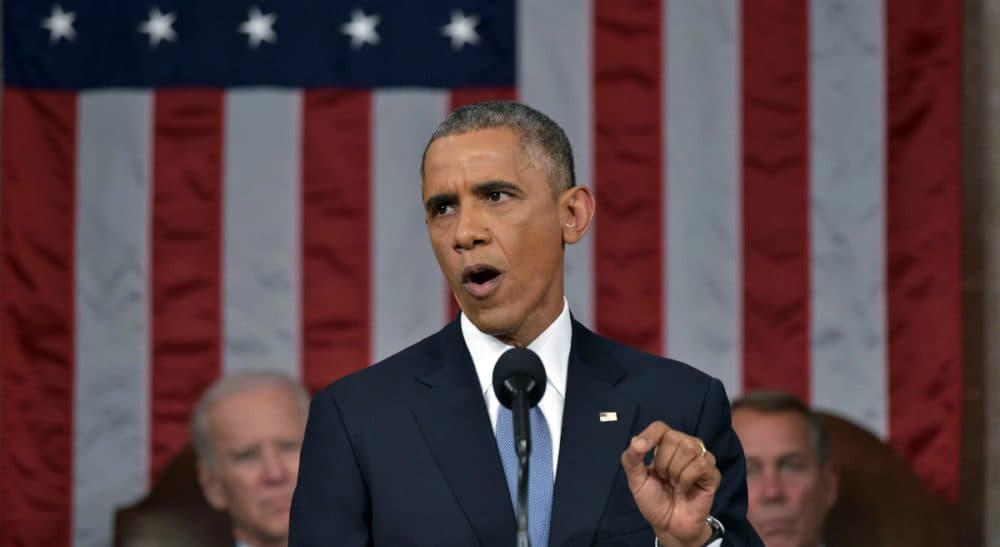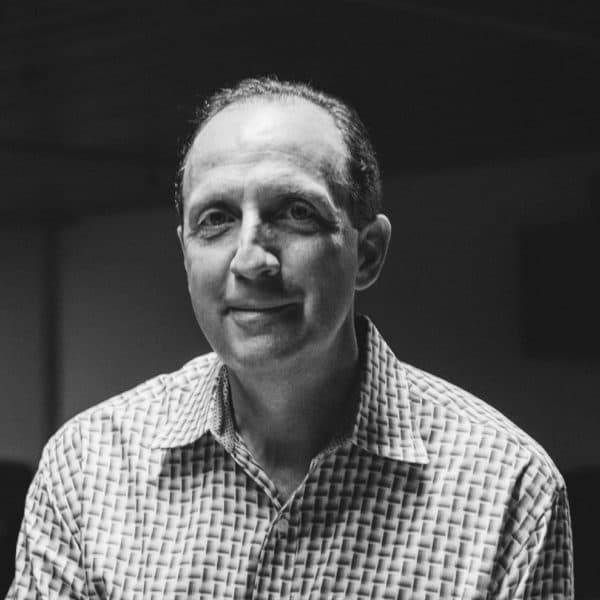Advertisement
State Of The Union Analysis: A Reflection Of Obama's Personal Sense Of Optimism

Many among the multitude of congressional Democrats who lost their races in November must be scratching their heads wondering where this President Obama was before the mid-term elections. Cynics in their party might reply that if they hadn’t run so far away from him during the elections, they might have discovered he was right there all along.
Acting as if his party – not the GOP – won by a landslide a couple of months ago, Obama continued his resurgent, aggressive strategy by delivering a confident, at times even boastful, State of the Union address.
The White House has been ebullient over recent improvement in Obama’s poll numbers. They had been mired for months in the low 40s and have now surged closer to 50 percent approval. Obama’s speech seemed to reflect his personal sense of optimism about his own job performance in its overall tone about the state of our union, perhaps taking the theme too far.
Obama claimed the 'verdict is in' on his policies and they have succeeded, leading to a time for the nation to 'turn the page' on the pessimistic crisis-driven approach to federal policymaking over the last decade.
Obama claimed the “verdict is in” on his policies and they have succeeded, leading to a time for the nation to “turn the page” on the pessimistic crisis-driven approach to federal policymaking over the last decade. A series of underlying reasons helped guide the president’s speechwriters.
First, for the long term, Obama wants to shape and define his personal legacy among those progressive historians who will ultimately write it. The State of the Union provided them Obama’s own, well-developed narrative. It had a clear beginning in crisis and a successful end in economic stability and the passing of the “shadow.” The speech even provided his vision for an inspired future where his policies will lead to new space travel and medical discoveries.
Next, for the short term, the president wants this speech and the red state barnstorming campaign he’ll head off on this week to Idaho (where he has never been as president) and Kansas to drive the policy agenda for the 2016 presidential election – and the 2016 Senate races, where the GOP will be defending 24 seats to the Democrats’ 10. At one point, despite claiming early in the speech he wanted to avoid specifics and discuss the broader theme of “values,” Obama rattled off no fewer than eight proposals that he argued would help “working families.” He cited the Commonwealth’s own newly minted paid sick leave policy among those proposals. That’s more than an agenda – it’s a checklist.
Moreover, using a bully pulpit supported by improving poll numbers and promising economic results brings an added benefit the White House covets. It creates buzz and keeps the president relevant. Ironically, since the mid-term debacle Obama has been far more vocal on issues that will define the races in 2016 than have Democrats in Congress or potential Democratic candidates for the White House. The president still remains the leader of his party – at least for now – and he was intent on flaunting it in the House chamber last night.
Interestingly, the White House seems to have laid a political trap for congressional Republicans over the weekend when it floated the notion of hiking capital gains and estate taxes as a significant part of the State of the Union in hopes of eliciting an overreaction. In fact, Obama mentioned the tax side of the ledger only briefly and vaguely, and instead sold his program by touting all the benefits his myriad programs and giveaways would bring to middle class families. So he was able to stay away from the tax-increase fray but nevertheless begin to frame the debate on tax policy. This was a sophisticated political enterprise.
It remains unclear, however, whether the Obama approach is really designed to try to achieve meaningful policy results with this Congress over the next two years, or whether it is merely a political strategy that doesn’t extend beyond legacy and agenda-setting.
Obama refused to acknowledge that the GOP swept the mid-terms and controls both houses of a co-equal legislative branch.
To this end, Obama was oddly schizophrenic in the State of the Union. On one hand, he devoted significant time late in the speech to reach back in time for rhetoric from his first presidential campaign to plead passionately for a bi-partisan approach to finding common ground and fixing a broken Washington.
Yet on the other hand, Obama refused to acknowledge that the GOP swept the mid-terms and controls both houses of a co-equal legislative branch. He threatened at least four vetoes of GOP legislation and didn’t budge on any of his progressive initiatives. Obama even betrayed anger when, after some members of Congress clapped when Obama delivered the line that he isn’t running for office again, he shot back in an improvised moment that they were clapping because he had already won twice. It was an attempt at humor by the president, but it wasn’t delivered with grace and aplomb but rather with hostility.
The State of the Union did not provide much of a road map for cooperation. And the president did not take the opportunity to set a tone of reconciliation with a new Congress that is eager to make its own mark. The evening left the viewer feeling a bit empty and wondering, after all of the familiar rhetoric and forced optimism, where can the president and Congress work together?
